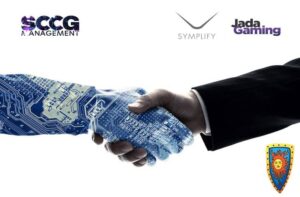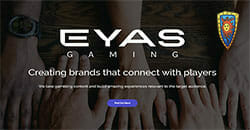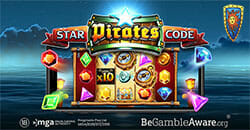By MaxD Feb 16, 2016
As most of our readers know Bryan and I make an annual pilgrimage to London in late January or early February for the ICE and LAC conferences. They’re probably the biggest and most important conferences of the year, especially for the non-US side of the business. For us that makes London one of the few “must do” events on the i-gaming calendar.
In recent years Bryan and I have informally split our reportage of ICE and LAC: Bryan does the play-by-play and I do what I’ll call “colour”. By “colour” I mean thoughts and commentary on the events, attendees and various goings-on that we saw during our visit. Bryan’s trip report is here and that’s a good place to start since I’ll be assuming you’ve read that already.
Ok, so, ICE 2016 was more of what it has been for a few years now: a PITA to get to and bang in the middle of an industrial dead zone once you’re out there. Yay … not. That said the conference itself is big, noisy, ostentatiously inflated and generally indispensable for getting shit done.
From Bryan’s report you’ll know that we had our usual meeting with Kahnawake, this time on the Day 1 of ICE. I’ll repeat what he’s said: their self-exclusion (SE) policies are the best. As far as I know their ability, and willingness, to apply a player’s SE request across all licensees in one go is unique in the business. Likewise their “for life” enforcement. Anyone wondering how SE should be done would do well to study and follow the Kahnawake example.
Kahnawake’s annual Dispute Resolution Summary — another first and (so far) the only public Dispute Summary published by an i-gaming regulator — turned up a couple interesting things that I wanted to ask them about. Firstly the Report shows a significant spike in player issues during year-end, namely November-December-January. I wanted to know if this is typical for them because it certainly isn’t for us. As it happens it is typical for them and they believe it’s down to player over-enthusiasm in November-December — issues with bonus terms, etc — and player regrets in January, largely comprised of the “I want my money back” type of request. By contrast I find those same periods to be a fairly slow period for PABs with the possible exception of January where we often see a disproportionate number of “where’s my money?” issues.
Secondly they had an unusual number of unresolved issues from October. “What’s with that?” I wanted to know. As I recall it turned out that a few casinos had had issues with a payments processor: the players were getting paid but it was taking some time and Kahnawake was keeping their issues open until they’d been paid in full. “Fair go” I say and that settled that.
The Meister Meeting on Tuesday evening was a treat, as always. A little smaller than last year — that seems to be the way of things when ICE precedes LAC as it did this year — but the Meeting was well attended nonetheless. At one point I sat for a while with the young gents from Chance Hill and we had a lovely chat about Tarantino films, Spanish politics, their adventures in Eastern Europe, future tech and their plans for 2016. Good lads, I wish them all the best in the coming year.
As we’ve done in recent years the last of the Meister Meeting faithful headed to our favourite Chinese restaurant — Joy King Lau if anyone is asking — and I think we found at least one new convert to our favourite dish, deep-fried spicy tofu. Our friend Magnus from VideoSlots was not one of them but that’s fine, it was great to have him join us.
Fast forward to our dinner Wednesday night with the guys from 32Red. It’s always a pleasure to spend an evening with them because they’re smart, great conversationalists, very good at what they do and they’ve been around the gaming industry — B&M and online — for ages. In a word, “professionals”. We asked about the fairly recent slower payments issue at 32Red but truth be told it was a little late in the evening: either the explainer or the listeners (or both) managed to get a bit muddled and the message didn’t quite get through. I’ll be following up on this in the coming weeks to see if we can’t shed a little (un-muddled) light on the subject.
Thursday was the first day of LAC. It’s an entirely different ballgame from ICE and is fully focused on affiliate-related issues … as you might expect from an Affiliate’s Conference. Anyway there were a few particularly interesting take-aways from this part of the week:
Lesson #1 was that the consolidation trend in the industry at large — that is, smaller operators being bought up and/or absorbed by the larger ones — is also happening in full force on the affiliate side of the business. Small-time affiliates are an endangered species these days for a variety of reasons, not the least of which is guys with deep pockets wandering around the conference looking to buy up pretty much any affiliate that is interested in selling. One group in particular was very thorough and we saw them talking to every major affiliate operator willing to sit and listen.
Whether this is a good or bad thing for the industry is pretty much beside the point, as it is with the casino side of the business. The reality is that it is happening and will continue to happen until all the valuable properties have either died, been bought up or have upped their game so they can weather the changes and remain independent. Another way to word this is “survival of the fittest” where “the fittest” often means “the richest”. But it can also mean “the smartest” and that, of course, is who independent sites like us want to be. As Bryan has already described, a year of change is upon us here at Casinomeister: “buy the ticket, take the ride” and we’ll see what we see.
The second revelation from LAC came while I was sitting in on “The LAC 10-Year Anniversary Panel”. If you’re anything like me that sounds coma-inducing and frankly I wouldn’t have been there if Bryan hadn’t been one of the speakers. Well I’m very glad I did go because all the speakers were highly experienced industry veterans who had great insights into where the industry is headed and why. Among them was Luisa Woods, VP of Tropicana Entertainment and she said two things that helped me understand our business and our future more than anyone else in recent memory. The first thing she said was that casinos will always need affiliates for innovation in player acquisition which — and I’m paraphrasing — casinos pretty much suck at. The second point she made was that casinos need affiliates to handle dispute resolution because players will never trust casinos to settle disputes on their behalf.
I found this second point particularly interesting because of the recent developments in the dispute resolution process within the UKGC. Initially the UKGC’s dispute resolution was going to be handled by groups and individuals — called Alternate Dispute Resolution or ADRs — that have no particular connection to the player community. The response from players was profoundly underwhelming as several particularly active threads on our forums demonstrated. But things may be changing in that the first player-facing site, ThePogg, has now been admitted to the ADR club and that has generated a lot of player enthusiasm indeed. Luisa Woods’ words about who players trust and who they want to handle their disputes rang very true indeed.
And that was pretty much it for the business side of our London trip. I drank a lot less than I normally do on these trips — largely because I was fighting a cold from Day 1 — and felt none the worse for it. A very educational, enlightening and (hopefully) profitable week in the dirty old town. Thank you London, looking forward to next year!
Source: https://www.casinomeister.com/ice-lac-2016-commentary/
- 1998
- 2016
- acquisition
- active
- ADR
- advice
- Affiliate
- Affiliates
- All
- among
- around
- BEST
- Biggest
- Bit
- bonus
- business
- buy
- Calendar
- call
- Casino
- Casinos
- change
- chinese
- club
- Column
- coming
- Commentary
- community
- complaints
- Conference
- conferences
- consolidation
- content
- continue
- Couple
- day
- dead
- department
- developments
- DID
- died
- Dispute
- Early
- eastern
- eastern europe
- educational
- Entertainment
- enthusiasm
- Europe
- events
- films
- Finally
- fine
- First
- follow
- Forward
- full
- future
- game
- Games
- Gaming
- Gaming Industry
- good
- great
- Group
- here
- How
- HTTPS
- i
- ICE
- important
- Independent
- industrial
- industry
- Innovation
- insights
- issues
- IT
- Job
- join
- keeping
- King
- large
- light
- London
- major
- management
- May
- money
- namely
- online
- Online Casino
- Online Gaming
- open
- operators
- payments
- player
- players
- policies
- politics
- Process
- Profitable
- public
- readers
- Reality
- reasons
- report
- response
- restaurant
- rules
- Service
- Short
- Sites
- smaller
- smart
- So
- sold
- Spanish
- speakers
- spend
- split
- start
- started
- Study
- talking
- tech
- The
- time
- treat
- Trust
- unique
- us
- Veterans
- week
- West
- What
- WHO
- within
- words
- writer
- year
- years












